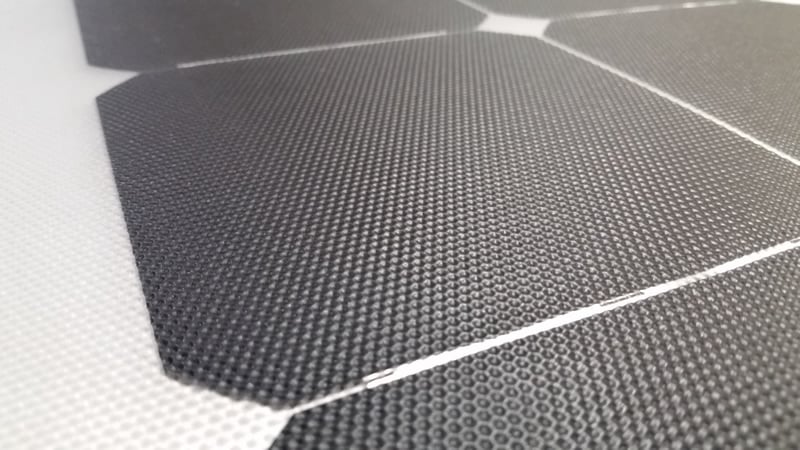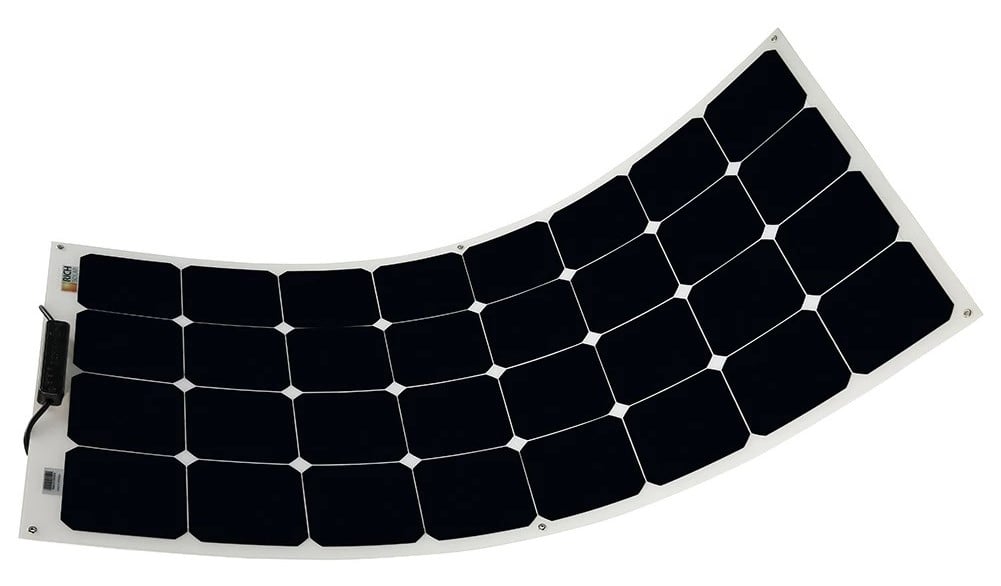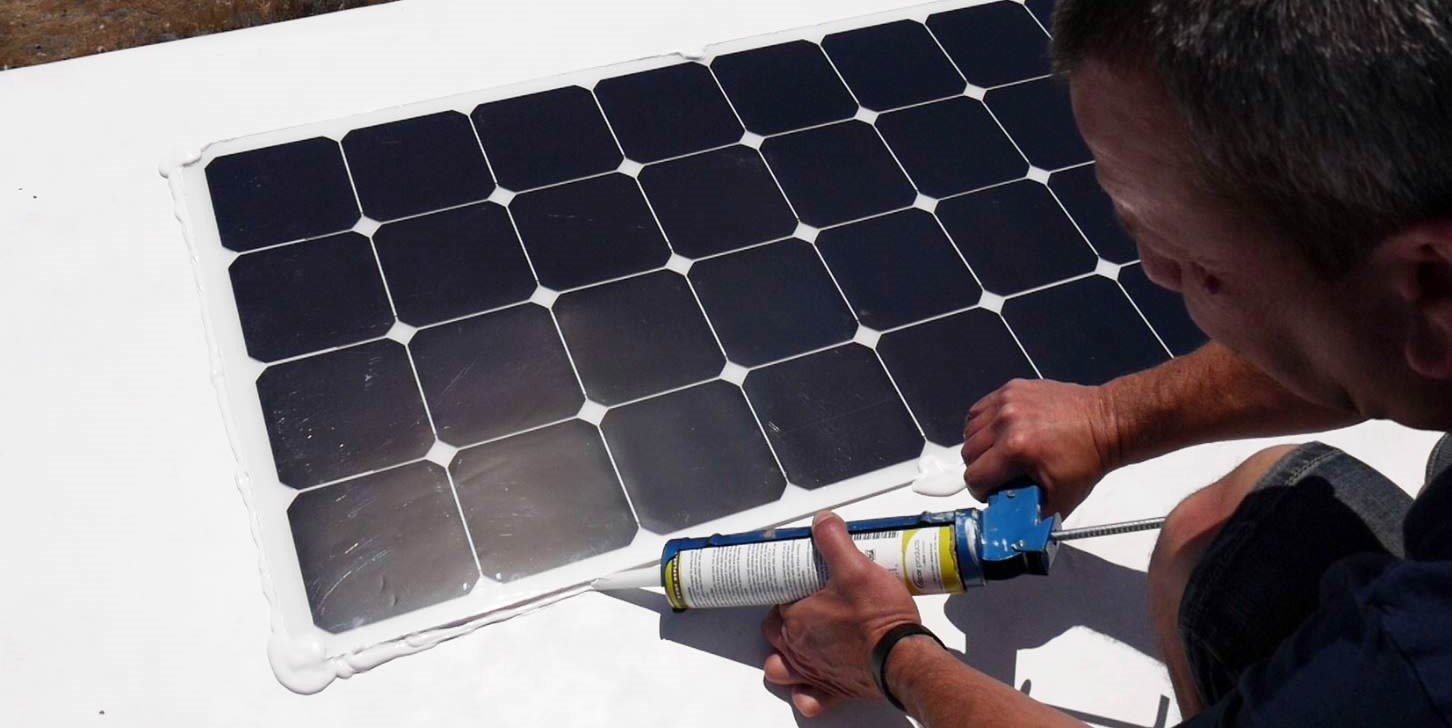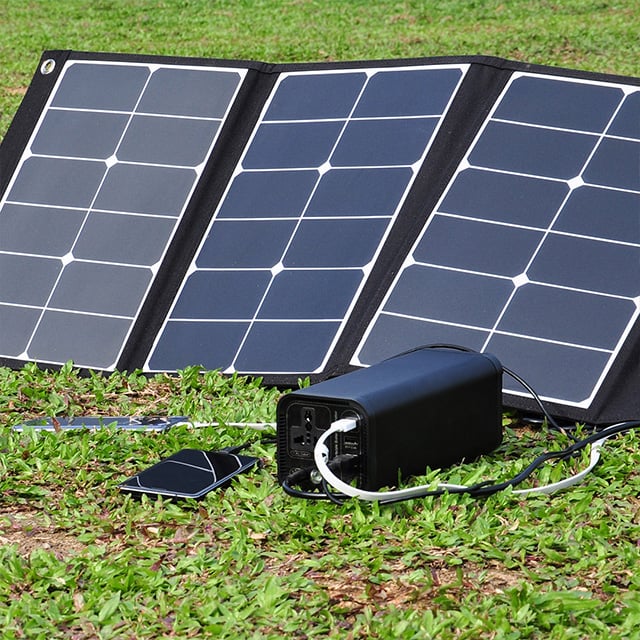
Flexible solar panels are thin, lightweight modules that can be bent or rolled up. Their portability makes them suited for off-grid applications such as camping, caravans, motorhomes or boats.
Due to their lower efficiency, these types of panels are not generally suitable for rooftops as they’d need an inordinate amount of space to generate power for the building - about twice as much space as crystalline panels for the same output. For domestic and commercial roofs, we’d always recommend traditional polycrystalline or monocrystalline panels. Flexible PV does have some interesting niche uses, however, and the potential for future applications in places where regular panels aren’t suitable.
There are two forms of flexible panels - one is a specific type of thin film solar, and the other a lightweight version of monocrystalline cells.
Image: Wikimedia Commons.
Flexible thin film is usually made from Copper-Indium-Gallium-Selenide (CIGS). A thin layer of these materials is placed on plastic backing, then connected to electrodes on the front and back. It absorbs sunlight so well that only a thin layer is needed to generate sufficient electricity. It’s made from layers of silicon over 300 times thinner than those in standard cells - just a few micrometres thick. Super flexible, they can often be bent to fit curved surfaces or rolled up for portability.

You can also buy monocrystalline semi-flexible panels, for example those manufactured by SunPower. These have a metallic backing but no glass front. Only a few mm thick, they’re relatively lightweight and have a limited bending angle (around 30 degrees).
If you’re using flexible or semi-flexible panels for solar power on the go, then you’ll likely be unrolling them and propping them to face the sun. If you want to get the best out of them, check out our best angle guide to optimise your positioning.
When it comes to more permanent installation, for example on boat or caravan roofs, the panels are often glued in place with powerful adhesive. Watertight cabling then goes through the roof to charge a battery via a charge controller. It’s best to stick rather than drill through the panels to avoid damage and voiding the warranty. Some flexible PV film even comes with a self-adhesive backing for sticking in place.

This and top image: RV with Tito.
Can you walk on flexible solar panels? This is a particular consideration when it comes to installation on boats, and some panels you can walk on - or at least occasionally step over in soft-soled shoes. Always check the product specifications.
Thin film panels are generally up to around 13% efficient, while SunPower monocrystalline systems claim efficiencies up to 25%. In terms of the power they generate, panels are generally available between 50-170W output.

Image: Wikimedia Commons.
While it’s unlikely flexible panels will be suitable for the systems we install, get in touch today for advice on the best panels for your project. Call us on 0118 951 4490.
Copyright © Spirit Energy 2026 · info@spiritenergy.co.uk · 0118 951 4490
Jobs and Careers
Interested in joining the Spirit team? Email jobs@spiritenergy.co.uk
Spirit House, 25 Albury Close, Reading, RG30 1BD
(Location formerly known as 44 Portman Road, Reading, RG30 1EA)
Spirit Energy is the trading name of Spirit Solar Ltd · UK Company Number 07138647
Although care is taken to ensure that the information on our website (www.spiritenergy.co.uk) and any guides, calculators or checklists provided by us, electronically or otherwise, are accurate and up-to-date, we cannot accept any responsibility for mistakes or omissions. We enter into no express or implied conditions, warranties, terms or representations regarding the quality, accuracy or completeness of the information. We exclude to the extent lawfully permitted all liability for loss or damage, whether direct, indirect or consequential arising out of your use of our website or any guides, calculators or checklists provided by us, or from any information or omission contained in our website or any guides, calculators or checklists provided by us.